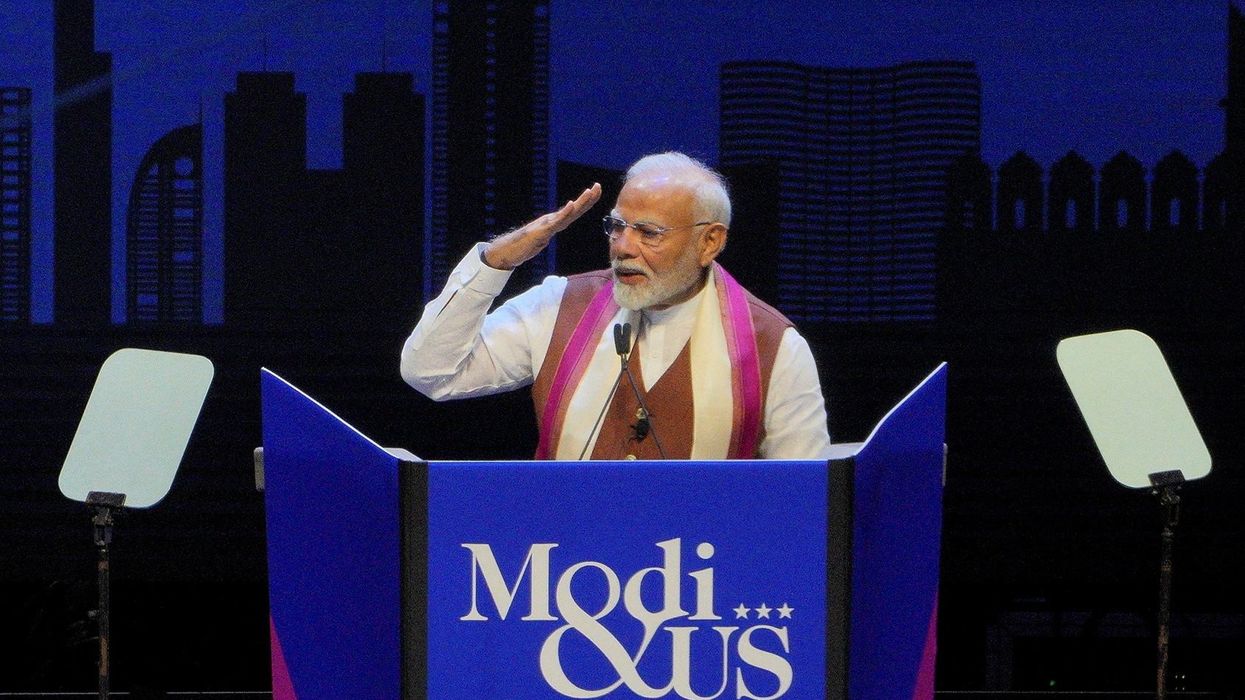INDIAN prime minister Narendra Modi addressed the Indian-American community in the United States on Sunday, focusing on the influence and power of the diaspora as the US presidential election approaches.
Speaking at a packed coliseum in the Long Island suburbs of New York, Modi discussed the significance of the 2024 election year and the broader theme of democracy around the world.
In his speech, which included Indian cultural performances featuring traditional dancing and songs, Modi emphasised that 2024 is a critical year for the entire world. “This year 2024 is a very important one for the entire world,” Modi said, according to a translation of his remarks. He highlighted the contrasting global scenario, stating, “On the one hand, there are conflicts raging between several countries in the world, there is tension. And on the other, democracy is being celebrated in several countries of the world.” He noted that India and the United States are united in this celebration of democracy.
Modi did not comment specifically on the ongoing US presidential contest between vice president Kamala Harris, who is of Indian descent, and former president Donald Trump. However, he acknowledged the impact of the Indian-American community, which is made up of approximately 4.5 million people, according to the 2020 US Census data.
Trump has announced his intention to meet with Modi later this week. The upcoming meeting is expected to focus on deepening ties between the two countries. Trump is currently engaged in a tight race against Harris, and his outreach to the Indian-American community is seen as an effort to gain support from this influential group.
Earlier this year, Modi secured his third consecutive term as the prime minister of India. He was sworn in following an election campaign marked by religious rhetoric and a surprising outcome that necessitated the formation of a coalition government. Despite these challenges, Modi managed to consolidate his position as the leader of the world's most populous nation.
During his US visit, Modi also met with president Joe Biden in Delaware. The leaders held both a one-on-one meeting and participated in discussions as part of the Quad grouping, which includes the leaders of Australia and Japan. The meetings were part of ongoing efforts to strengthen strategic partnerships among the Quad nations.
Ahead of the Modi-Biden meeting, senior US officials met with Sikh advocates to discuss the challenges faced by the Sikh community in the United States. While a US official declined to comment on whether human rights issues were raised during the talks between Modi and Biden, the meeting with Sikh representatives highlights ongoing concerns related to security and civil rights within the US.
The Indian-American community in the United States has become increasingly prominent in recent years, contributing significantly to various sectors including technology, business, and politics. Modi’s outreach to this community reflects the growing importance of the diaspora in shaping both Indian and American political landscapes. As the US election draws closer, the engagement between Modi and the Indian-American community is likely to continue, emphasising shared values and the role of democracy in both nations.
(With inputs from Reuters)













